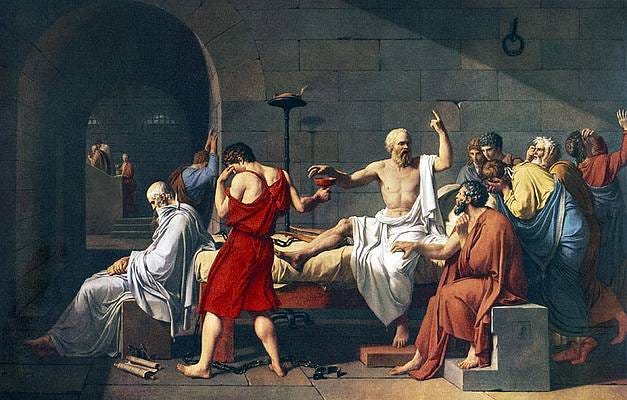Against Our Will

The Stoics of antiquity deeply understood the nature of mind and our experience of what we call “reality”. Marcus Aurelius counseled: “You have power over your mind, not outside events. Realize this and you will find strength.” This around the year 150.
One hundred years earlier Epictetus likewise taught that all external events are beyond our control; hence we should calmly and dispassionately accept whatever occurs.
And five hundred years prior, Plato, having studied under Socrates, noted, “Against our will, our souls are cut off from truth.” We are, in a sense, those allegorical cave dwellers failing to comprehend our imprisonment.
The philosophy of Stoicism has been incredibly beneficial, helping scores of individuals through the centuries lead less troubled lives.
Yet it wasn’t until after the Middle Ages that we understood the true nature of cause and effect. While our souls may indeed seem to be “cut off from truth”, it is not against our will.
Rather, it is by our will.
As we learn in A Course in Miracles, it is by choice we severed that connection from oneness. A “tiny, mad desire to be separate, different and special” (T-25.I.5)
The result of this choice, which we make in every moment, is our experience of what we call “life”. All the drama - the highs, lows, and seeming stability in between - all of it is the result of that choice.
Not against our will. By our will.
The awareness of which being incredibly helpful if we desire true peace.
Because if it is simply a willful choice that leads to all experiences of pain, then we need but make a different choice. One that leads to the most glorious freedom.
Join me in Thursday’s class where we’ll explore the nature of will and how we can practice making a different choice to meet with extraordinary peace. I look forward to seeing you then.



